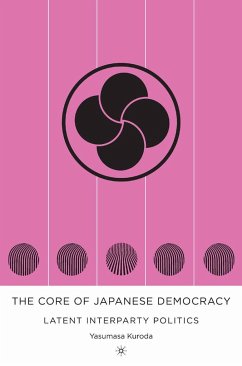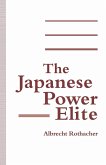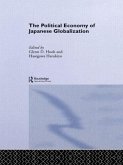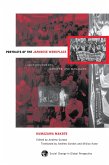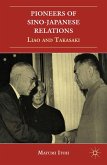This book seeks to explain how politics actually operates in the Japanese Diet using the author's bilayer theory or dual power structure theory. It is about how politics in Japan operates behind closed doors and how laws are actually made in the Diet. While some parts of the process remain hidden-subterfuge is inherently part of politics-the author uses interviews with party officials, current and former kokkai taisaku-inkai committee members of all parties in the Diet to elucidate the process as much as possible.
"Kuroda has done every student of Japanese Politics a tremendous service by exposing for the first time in any language the details of the way the system really works-'interparty relations committee politics.' It is something most specialists have known only vaguely about. But, without either praising or condemning the 'hidden' process, Kuroda has coolly and clearly put it at the center of the way Japanese politics must be understood and taught from now on."
- Jim Dator, University of Hawaii at Manoa
"The Core of Japanese Democracy is a challenging, stimulating and profoundly informative book. Yasumasa Kuroda combines an unusual ability to analyze Japanese political dynamics, its history and institutions, with a broad, international comparative perspective. Based on his 40 years of observation of Japan, interview data he collected from both journalists and high-echelon Diet members, and the existing literature, Kuroda offers comprehensive descriptions and analyses of the dual nature of Japanese political structure. His key observations point to a bilayer theory as the core of parliamentary politics. Kuroda's study raises crucial questions on the nature of Japanese democracy, and offers a detailed account on the way the ruling-LDP was able to function and control the entire legislative process in the Diet. The Core of Japanese Democracy is both an indispensable reference source for scholars and a useful resource tool for students of Japanese politics."
- Ofer Feldman, Doshisha University, and author of Talking Politics in Japan Today
"The Core of Japanese Democracy is another pioneering work on Japanese politics, skillfully executed by Yasumasa Kuroda. The author reveals the latent and hidden dimension of negotiation and compromises, taking place at the highest level of the Japanese Diet. This is the first book intensively exploring the hitherto neglected research area of latent legislative process centering IPRC politics, and demonstrating the significant roles the IPRC has played in fostering traditional consensus building and political stability in Japan."
- Hiroshi Itoh, Professor of Political Science, State University of New York, College at Plattsburgh
"Kuroda offers a new view of old-style Japanese politics by focusing upon a phenomenon to which most political scientists have paid little attention; namely, the "kokutai" [a secretive committee devoted to backroom bargaining.] The book offers a thought-provoking, new view of post-World War II politics as having functioned far more effectively than Japan's perennial one-party domination would suggest."
- Sam Jameson, former Tokyo Bureau Chief of both the Chicago Tribune and
the Los Angeles Times, and Dean of American journalists in Tokyo.
- Jim Dator, University of Hawaii at Manoa
"The Core of Japanese Democracy is a challenging, stimulating and profoundly informative book. Yasumasa Kuroda combines an unusual ability to analyze Japanese political dynamics, its history and institutions, with a broad, international comparative perspective. Based on his 40 years of observation of Japan, interview data he collected from both journalists and high-echelon Diet members, and the existing literature, Kuroda offers comprehensive descriptions and analyses of the dual nature of Japanese political structure. His key observations point to a bilayer theory as the core of parliamentary politics. Kuroda's study raises crucial questions on the nature of Japanese democracy, and offers a detailed account on the way the ruling-LDP was able to function and control the entire legislative process in the Diet. The Core of Japanese Democracy is both an indispensable reference source for scholars and a useful resource tool for students of Japanese politics."
- Ofer Feldman, Doshisha University, and author of Talking Politics in Japan Today
"The Core of Japanese Democracy is another pioneering work on Japanese politics, skillfully executed by Yasumasa Kuroda. The author reveals the latent and hidden dimension of negotiation and compromises, taking place at the highest level of the Japanese Diet. This is the first book intensively exploring the hitherto neglected research area of latent legislative process centering IPRC politics, and demonstrating the significant roles the IPRC has played in fostering traditional consensus building and political stability in Japan."
- Hiroshi Itoh, Professor of Political Science, State University of New York, College at Plattsburgh
"Kuroda offers a new view of old-style Japanese politics by focusing upon a phenomenon to which most political scientists have paid little attention; namely, the "kokutai" [a secretive committee devoted to backroom bargaining.] The book offers a thought-provoking, new view of post-World War II politics as having functioned far more effectively than Japan's perennial one-party domination would suggest."
- Sam Jameson, former Tokyo Bureau Chief of both the Chicago Tribune and
the Los Angeles Times, and Dean of American journalists in Tokyo.
